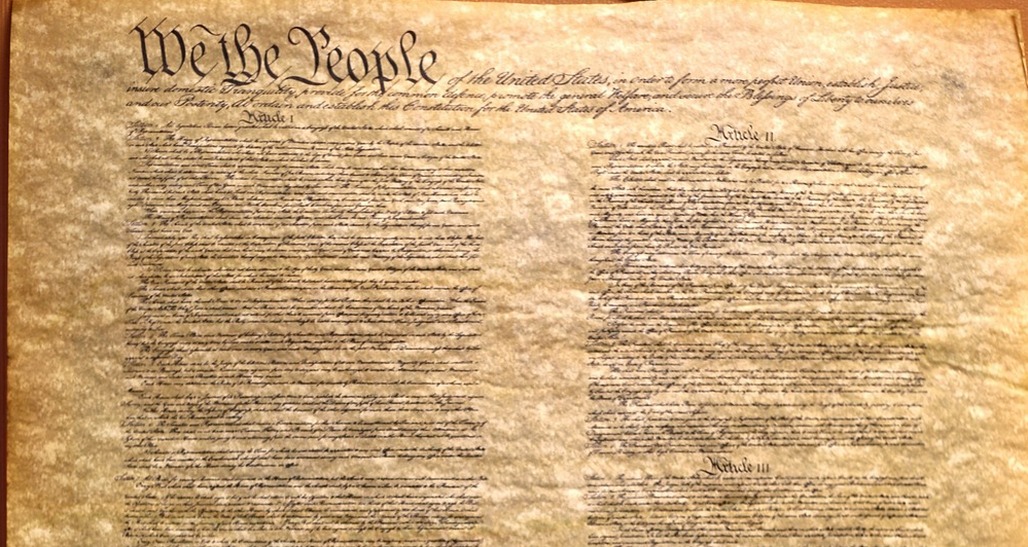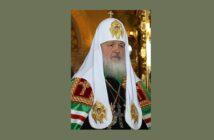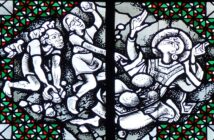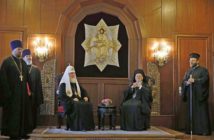Source: Public Orthodoxy
by Sister Vassa Larin
Liturgiologist and Founder of Coffee with Sister Vassa
I presented the following paper on February 17, 2024 in Wheeling, IL, at a conference entitled “We’re Not Alone.” The conference was organized by laypeople of the Russian Orthodox Church Outside Russia (ROCOR), concerned about the church issues arising from Putin’s war against Ukraine.
The topic of the paper, “The ROCOR and Western Values: Past and Present,” needs reflection, because Patriarch Kirill and the Putin regime have repeatedly justified the invasion of Ukraine as some kind of effort to save Ukraine from the influence of “Western values.” At the same time, my own church, the ROCOR, the Synod of which is based in the United States, has said nothing in defense of these “Western values” within Russia itself, or within the Russian Orthodox Church of the Moscow Patriarchate, of which the ROCOR is officially an “autonomous” part.
Before I say more about “Western values” in the ROCOR, let me provide one example of Patriarch Kirill’s attacks on what he understands under “Western values,” so that we get an idea of how and why our church in the Western diaspora might understand these differently. Here is what the Patriarch said in his sermon on March 6, 2022, on Forgiveness Sunday:
For eight years, attempts have been going on to destroy what exists in Donbass. And in Donbass there is a rejection, a fundamental rejection of the so-called values that are today offered by those who claim world power. Today there is such a test of loyalty to this power, a kind of pass to that “happy” world, the world of excess consumption, the world of alleged (vidimoy) “freedom.” Do you know what kind of test this is? The test is very simple and at the same time terrible: it’s a gay parade. The demands of many to hold a gay parade are a test of loyalty to that very powerful world; and we know that if people or countries reject these demands, then they do not enter that world, they become strangers to it.
But we know what this sin is, which is promoted through the so-called dignity marches. This is a sin that is condemned by the Word of God—both the Old and the New Testament. Moreover, the Lord, while condemning sin, does not condemn the sinner. He only calls him to repentance, but not to the point that through a sinful person and his behavior, sin becomes a standard of life, a variation of human behavior—respected and acceptable.
What the Patriarch is doing here is calling us to focus on straining a gnat, so that we swallow a camel. He draws our attention to gay pride parades, which I would call a “gnat,” because they are a once-a-year occurrence in Western cities, are certainly not everyone’s cup of tea, and certainly not attended by the overwhelming majority of the population, although they are allowed—just as pole-dancing, topless bikinis, and flamboyant, revealing costumes at Mardi Gras celebrations are allowed at certain times and places in the West. But the Patriarch manipulates the sensitivities of Orthodox Christians to such “sinful” things in order to help us swallow the “camel” of justifying military aggression against those he perceives as the sinners. To state the obvious, no expression of human being, of being human, also sinfully human, actually justifies killing people to put a stop to these expressions, insofar as they are not hurting others. And in the West, every sovereign country decides, via its legal system, what the boundaries are of acceptable behavior in public, to ensure the peacable co-existence of its people. In Western countries, there is sometimes disagreement as to what is or is not acceptable in public, like the issue of Muslim women wearing the full hijab, or the issue of allowing trans-people into certain bathrooms, etc. And in the messy business of democracy, which presumes the freedom of the individual and of religious and other kinds of communities to be themselves within the framework of the law, we not only put up with some things that rub us the wrong way, but we also enjoy the freedom to dress, worship, express our opinion, etc., and to go about our business, in our own way. We enjoy and value these freedoms, as Church, and as I will show below, we also cherish these “Western values” in the ROCOR.
Let me specify more exactly which “Western values” I am talking about. I am keeping in mind the specific “Western values” protected by the First Amendment to the U.S. Constitution, adopted on December 15, 1791, as one of the ten amendments that make up the Bill of Rights. These “Western values” are freedom of religion, freedom of speech, freedom of the press, and freedom of assembly, all of which are enjoyed and exercised in the West by my church outside Russia, but are no longer enjoyed by Russian citizens under the Putin regime. Believing Orthodox Christians like Alexey Navalny [killed after this paper was written, on Feb. 15-16, 2024]and Vladimir Kara-Murza languish in penal colonies for bearing witness to corruption and crackdowns on these freedoms within Russia, and faithful priests like Fr. Alexey Uminsky and Fr. John Koval are removed from their positions and even defrocked by the Moscow Patriarchate for praying for peace and not victory. These priests have been defrocked for not reading verbatim at every Divine Liturgy the Prayer for Holy Rus’, known as The Prayer for Victory, written by Patriarch Kirill.
Nonetheless, since the beginning of Putin’s war against Ukraine, the leadership of my church outside Russia, the ROCOR, has said nothing in defense of “Western values” in Russia, even while it has said plenty against what it deems the violations, by the Zelensky government, of religious freedom and human rights in Ukraine. In previous decades throughout the Soviet period, my church did speak out against persecutions of Christians also in Russia, which is what led to its break with the church-administration of Metr. Sergiy Stragorodsky, who inaugurated a policy of loyalty to the atheist Soviet regime in 1927.
I will return to Metr. Sergius’s 1927 Declaration of Loyalty to the Soviet regime at the end of this paper. But first, I will: 1) explore ROCOR’s present-day selective application of Western values to Ukraine and not Russia; 2) I will reflect a bit on the ROCOR of my childhood, which self-identified as “the free voice of the Russian Church”; and 3) I will reflect on how we might grow and move forward, not discouraged but encouraged, both by our church history and by the challenges with which we are presented at this time, as Church.
The ROCOR and Western Values Today
Let’s look at some of the examples of recent ROCOR statements in defense of Western values in Ukraine. Our first example is in the official press-release of the regular session of the ROCOR Synod of Bishops on December 9, 2022:
Metropolitan Mark proposed separately to examine and deliberate on matters pertaining to the life of the Ukrainian Orthodox Church, which is now subjected to persecutions and politically-motivated agitation. The Synod of Bishops expressed its alarm over the aggression and violence directed against the life of the canonical Church on the territory of Ukraine, calling upon all those in positions of authority not to close their eyes but to lift their voices and insist on the reestablishment and observance of the elementary rights and religious freedoms of His Beatitude Metropolitan Onouphry, the archpastors, pastors and many millions who constitute the flock of the Ukrainian Orthodox Church.
Please note that in the above-quoted statement, Metropolitan Mark is presuming that “elementary rights and religious freedoms,” i.e., Western values, are something for which it is necessary to speak out.
We have also seen several statements published by various ROCOR dioceses in the United States on this issue. For example, the statement from the Lenten Retreat of the Eastern American Diocese of the ROCOR on April 12, 2023, which decried the “attempted eviction” of monks from the Kyiv-Caves Lavra by the Ukrainian government. (I’ll observe parenthetically that the monks are still not, actually, evicted from the Lavra.) Here is a quote from this statement:
These actions and the attempted eviction from the Lavra by the Ukrainian government have drawn condemnation from almost all of the Local and Autocephalous Orthodox Churches, and we join our voices to theirs in entreating the Ukrainian authorities to charge their course of action and allow the Ukrainian Orthodox Church to perform its spiritual functions in peace. As patriotic, law-abiding, and dutiful citizens of the United States of America, we also entreat our Congress to take the necessary actions within its power to safeguard the religious freedoms of the clergy and faithful of the Ukrainian Orthodox Church.
Here, again, we see an affirmation not only of “the religious freedoms of the clergy and faithful,” but also to being “patriotic, law-abiding and dutiful citizens of the United States.” In other words, here we have an affirmation of “Western values.”
Also, the 2023 Lenten Retreat of the ROCOR Diocese of Chicago and Mid-America, convened in San Antonio, was not silent on the issue of one of the churches in Ukraine, stating in its Resolution: “Vladyka Peter encourages that we all write to our government representatives, voicing our support for the canonical Church in Ukraine and our disagreement with the American government’s support for the schismatic church.” Here we even have civil, democratic, political action being encouraged in all the faithful, to write to members of the US Congress, during Lent. In case any of us have heard in the past two years that the ROCOR stays out of politics, let’s keep in mind that it does not mean that, even during Lent, we should not write to our government representatives to voice disagreement with the American government’s policies. Is that confusing? Is it not “politics”?
During that same Lent of 2023, ROCOR Bishop Irenei of London and Western Europe also felt he could not “remain silent” on this issue, publishing a statement that begins as follows:
Conscience does not permit me to remain silent over the grave and new injustices being wrought in the sacred land of Ukraine, adding sorrow upon sorrows as the grief of war is now conjoined with the tragedy of the most extraordinary and heartless persecution of Christians taking place in many parts of the country. While such persecution has been a reality already for many years, it has reached a pitch in recent days with new injustices being enacted in flagrant violation of Ukrainian law and international conventions on human rights.
Again, we can observe here a concern for the “Western value” of “international conventions on human rights.” This is surprising, because the same Bishop Irenei of London and Western Europe published a video and a statement in September 2023, entitled “We Stand Wholly Against this War,” in which he insists that the ROCOR stays out of politics, and that the ROCOR allegedly stands against any persecution “in all cases—whoever may be their perpetrators.” I quote the words of Bishop Irenei:
In the Church we are not politicians. We in the Church Abroad are not linked with any state or government, nor any political ideology, as some in the media are nevertheless swift to assume…This is not a political question for us but a religious one. We stand against all war, and this war in particular, as we stand also against bloodshed, and against persecution in all cases—whoever may be their perpetrators.
But is this true? Are there not persecutions of priests in Russia who are against the war, and have been defrocked and forced to flee Russia, because of this? Have not believing Orthodox Christians and many others been imprisoned for standing up against corruption and war-mongering in Russia? Where or how have we stood against this? Where are the ROCOR statements against the Putin regime that perpetrates these draconic persecutions? I might ask further, where are the ROCOR statements against the war-crimes in Bucha, Mariupol, or the constant targeting of civilians and civilian infrastructure in Ukraine? Bishop Irenei says he cannot remain silent about, and I quote again, “the tragedy of the most extraordinary and heartless persecution of Christians” in Ukraine. But has he not noticed “the tragedy of the most extraordinary and heartless” massacre of civilians in Ukraine? No? Would that be too “political,” to name these atrocities?
In light of all the ROCOR political statements against the domestic politics of the Ukrainian government, and, at the same time, its conspicuous silence on other issues, like domestic politics in Russia, including the persecution of priests who pray for peace, we might wonder why our ROCOR is so one-sided in its defense of Western values. Is it because our church, perhaps unwittingly, is being “handled” or curated by Kremlin operatives in the West?
Before you suspect me of baseless conspiracy theories, I must mention a disturbing fact, which recently came to light about this very issue, of alleged “persecutions of Christians in Ukraine,” being propagated by FSB operatives in Europe, through European politicians in their pocket. A recent investigation, conducted by the renowned Christo Grozev of Bellingcat and his colleagues, published by The Insider on February 1, 2024, revealed that an FSB (Russia’s Federal Security Service) operative or agent in Europe, Ilya Vechtomov, known as “Alexei,” instructed one of the people in his pocket in the German parliament or Bundestag to propagate this issue specifically, of persecutions of Christians in Ukraine. The FSB operative Vechtomov instructed his man in the Bundestag, a man named Vladimir Sergienko, advisor to Eugen Schmidt of the far-right AfD or Alternative for Germany party, to present this issue of “persecutions of the church” in Ukraine in several places, including a speech at a session of the Bundestag and in a letter to Pope Francis, a letter which was reviewed by the FSB operative. The goal of such Russian FSB agents working in the West, as revealed in this investigation, which hacked into the personal correspondence of the two men in question, is to achieve the stop of military aid to Ukraine. Please know that this report, along with further investigations conducted by Christo Grozev and his team, is not some fringe theory of a group not taken seriously by serious people. These investigations have generated broad discussion and an internal investigation within the EU Parliament, and I think one needs to be aware of at least the possibility that FSB operatives are also doing their work in church circles in the diaspora.
The ROCOR and Western Values in the Past
On a personal note, I’d like to remember the ROCOR of my childhood and youth in the late 1970s and 1980s, when we as church, together with our priests and bishops, would demonstrate in front of the Russian Embassy in New York, with picket signs, against the persecution of Christians in the USSR. My father, a ROCOR priest, had a bumper sticker on his station wagon that read, “Pray for Persecuted Christians in the USSR.” And the Synod of Bishops of the ROCOR self-identified as “the free voice of the Russian Church,” as I have seen in many of the protocols of Synods and Councils of the ROCOR, which I meticulously studied in the Synod archive in New York City, years ago in the beginning of the 2000s, when then-Archbishop Mark of Berlin and Germany gave me the job of preparing reports and essays on the history of ROCOR’s break with the Moscow Synod of Metr. Sergius. The point of this research was to help prepare the restoration of communion between the ROCOR and the Moscow Patriarchate. I presented my reports to Archbishop Mark; I also presented several papers at closed, joint meetings of ROCOR representatives and MP representatives, which came together to discuss differences between the two jurisdictions, in preparation for their restoration of communion that happened in 2007.
On the basis both of my life experience within the ROCOR and of my studies of its history, I would observe that, to say that the ROCOR is non-political is to be ignorant of its history, nay, of its entire raison d’etre, or the reason it emerged as a distinct church-entity in the diaspora. The history of the separation of the ROCOR from communion with the Moscow Patriarchate begins, in fact, with the refusal of the Synod under Metr. Anthony Khrapovitsky of blessed memory to stop speaking out against the Soviet regime’s persecutions of the Church in Russia. Here is what the already-mentioned Declaration of Loyalty to the Soviet regime of Metr. Sergius Stragorodsky and his Synod, dated July 16/29, 1927, says on this troublesome (for the Soviet regime) matter, of the diaspora bishops and faithful being outspoken about the crimes of the Soviet regime and thus preventing “trust” being established between the Moscow church and state:
…Unfortunately, various circumstances, mainly words and actions by foreign enemies of the Soviet state, which included not only ordinary faithful of our Church, but also their leaders, were the cause of a natural and justified distrust of the government toward the church leaders in general, which hampered the efforts of His Holiness [Patriarch Tikhon] and he was not destined to see these efforts [to achieve the Soviet regime’s trust]bear fruit in his lifetime.
Sergius further says in this infamous Declaration of Loyalty:
In this situation, the matter of the clergy who left the country with the emigrants becomes especially acute. The harsh anti-Soviet rhetoric of some of our hierarchs and priests abroad which has caused much harm to the relations between the government and the Church, as you know, forced the late Patriarch to abolish the Synod Abroad (2 May/22 April 1922). But the Synod still exists without changing politically; moreover, it has recently, by its claims to power, even split the Church society abroad into two camps. In order to stop this, we asked the clergy abroad to commit in writing to complete loyalty to the Soviet government in all of its social activities. The clergy who would not make such a commitment or break one are to be excluded from the ranks of clergy subordinated to the Moscow Patriarchate. We think that by placing such a line of demarcation we will be secured from any surprises from abroad.
As we know, the ROCOR Synod refused in 1927 and throughout the rest of the 20th century to become silent as Sergius had demanded. Today, however, since the unification with the Moscow Patriarchate in 2007, one hundred years after the Sergian Declaration, we have become silent, specifically about persecutions in Russia, and about the “Western values” we do still rise up to defend, at least when it comes to talking about what we deem to be persecutions of Orthodox Christians in Ukraine.
What Can We Do?
I think that we in the so-called diaspora might rediscover our role, to be a thorn in the side of the perverse marriage between a church and a murderous, corrupt state within Russia, by testifying to the truth of this perverse codependency. Today this perverse marriage and codependency produces the destructive for the Church, and criminally-aggressive and destructive for the lives of millions in Ukraine, words and actions coming from the Moscow Patriarchate, which manipulates Scripture and other aspects of Orthodox Tradition in order to justify and support the criminal aggression against innocent people in Ukraine and against the best people in Russia. These manipulations of church-tradition are also used to lead us into devaluating the “Western values” that are the freedoms we ourselves enjoy in the West, as if freedom were not an Orthodox Christian value.
But for us to bear witness to the truth of this matter, I think we need to deepen our understanding of it, of the truth of this matter. What lies at the heart of it is a profound misinterpretation of who we are, as Church, what and Whom we value, what and in Whom we believe and trust, to Whom we owe our first and foremost obedience, and from Whom it is that “church unity” comes.
Our ROCOR proclaimed many years ago, in the hymns to the New Martyrs and Confessors of Russia, that “It is not the human being that saves the Church.” (Ne chelovek spasaet Tserkov’.) Do we believe this today, or do we think it is better to be silent, for the sake of “church unity,” so that we can secure church unity, even when death and destruction is being justified in the name of supposedly “traditional values”? Is unity at all costs what the ROCOR believes in? Does the ROCOR, which always condemned ecumenism as a “pan-heresy,” specifically because the ROCOR understood it to be a sacrifice of truth for the sake of unity, now actually silencing truth for the sake of unity? As Church, I think we are responsible for discerning the theological and ecclesiological truth, when manipulations of, and lies about, this truth are proclaimed from the highest church-pulpits of the Moscow Patriarchate.
Let’s note that we see the manipulation of Scripture already in the 1927 Sergian Declaration of Loyalty, namely, in the quote from Romans 13, which in its first five verses talks about being subject to state authorities. The Declaration of Loyalty professes:
“…We want to be Orthodox and at the same time to be conscious of the Soviet Union as our civil motherland, whose joys and successes are our joys and successes and whose failures, – our failures. Any blow directed at the Union, be it a war, a boycott, some kind of public calamity or just a treacherous murder…, is recognized as a blow aimed at us. While remaining Orthodox, we remember our duty to be citizens of the Union ‘not only out of fear, but also for conscience’ sake,’ as the Apostle teaches us (Romans 13:5).
Regardless of the well-known fact that St. Paul himself, who wrote these words, was beheaded by his state authorities, for being disobedient to them in matters of his conscience, the Moscow Patriarchate has fostered a church-culture that demands complete obedience not only to anything and everything its state authority demands, but also to its own church authority; to anything and everything the Patriarch demands. For example, we see this in the multiple cases of defrocking priests, for not reading verbatim his Prayer for Victory.
Another current example of the Moscow Patriarchate’s manipulation of Orthodox Christian tradition, specifically of Old Testament Scripture, to justify the Putin regime’s militant attack on “Western values,” is one of Metropolitan Tikhon Shevkunov’s thoughts, which he shared in an interview with Ksenia Sobchak, aired on May 15, 2023 on YouTube. In this interview, the vlogger Ksenia Sobchak asks Metr. Tikhon about the difficulties, for her younger generation in Russia, of now being gradually cut off from the West and from Western things, with which her generation grew up in the last several decades, and to which they have become accustomed.
In response to this question, Metr. Tikhon brings up the Old Testament story of Exodus. He says that in recent decades after the collapse of the Soviet Union, when Russia opened up to the West and enjoyed aspects of Western culture like McDonalds and iPhones and movies and so on, Russians were like the chosen people in Egypt, enslaved by foreigners. But then Moses led them out of that slavery, into the wilderness, where they complained and grumbled without the Egyptian foods. Let’s note that in this analogy, we must presume that Putin is Moses. And now, Metr. Tikhon explains, we are being freed from that slavery and being led to the Promised Land, which will be our own. Mind you, the reality of Putin’s Russia involves an increasingly-totalitarian state, embroiled in a senseless war that has already killed half a million people altogether, cracking down brutally on the slightest expressions of dissent, and causing a massive “exodus” from Russia of many of its brightest minds, that is, those who can afford to emigrate. Statistics published by The Economist show that since February 2022, between 817,000 and 922,000 people have left Russia.
So, what would be the most obvious application of the biblical Exodus story, in the context of today’s Russia? Is Putin the Moses, leading people out of slavery? Or is there a major Exodus of people, fleeing Putin’s leadership, as the chosen people fled from the Egyptian Pharao?
I think we constantly need to “re-story” ourselves, when today we are confronted with such manipulations of our common stories, our biblical and church-history stories, and witness to the truth about us, as Church. Thus we might grow and become stronger, from such challenges to our ecclesial sanity and identity, rather than be manipulated by them, into serving foreign masters with an agenda foreign to that of the Church.
ABOUT AUTHOR
 Sister Vassa Larin
Sister Vassa Larin
Liturgiologist and Founder of Coffee with Sister Vassa




